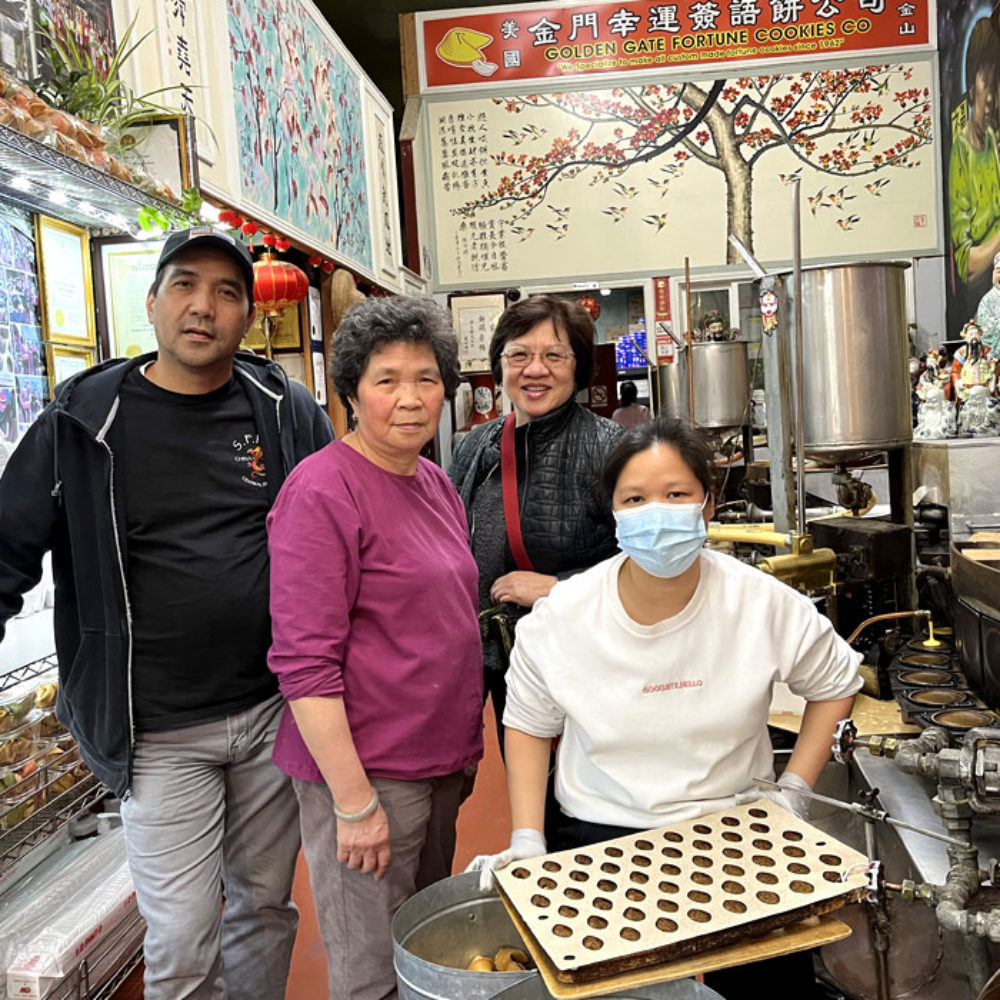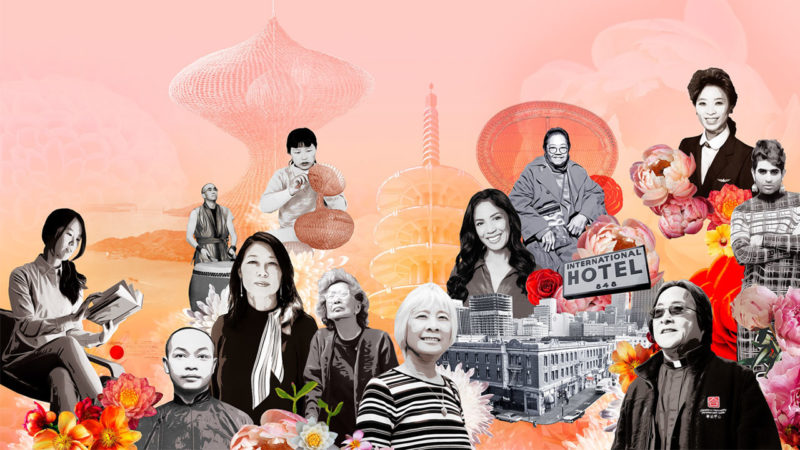Combating anti-Asian biases with meaningful investments and focused support
Grants plus community works are some of the ways we’re supporting Asian American and Pacific Islander communities within Wells Fargo and around the country.
In 2021, Wells Fargo awarded $1 million in grants to provide support for Asian American and Pacific Islander, or AAPI, communities and small businesses in response to the COVID-19 pandemic and the recent increase in anti-Asian racism, discrimination, and violence.
“Because our employees are an integral part of their communities, we were able to put our ears to the ground to really learn about needs nationally and locally,” said Gigi Dixon, Wells Fargo executive vice president and head of External Engagement, Diverse Segments, Representation, and Inclusion. “This enables us to fund organizations and programs that can in turn help create meaningful change in Asian American and Pacific Islander communities. It's more than just our corporate social responsibility. It’s using our voice and resources to stand in solidarity with our AAPI employees, customers, and communities.”
Some of the business owners and community leaders shared how the grants have made a difference.

Rejuvenating advocacy in Tucson
OCA-Asian Pacific American Advocates used the support from Wells Fargo to empower its chapters across the country and to expand its AdvOCAtes in Action program, which addresses anti-Asian hate incidents through workshops and webinars on allyship, anti-racism, and Asian American history.
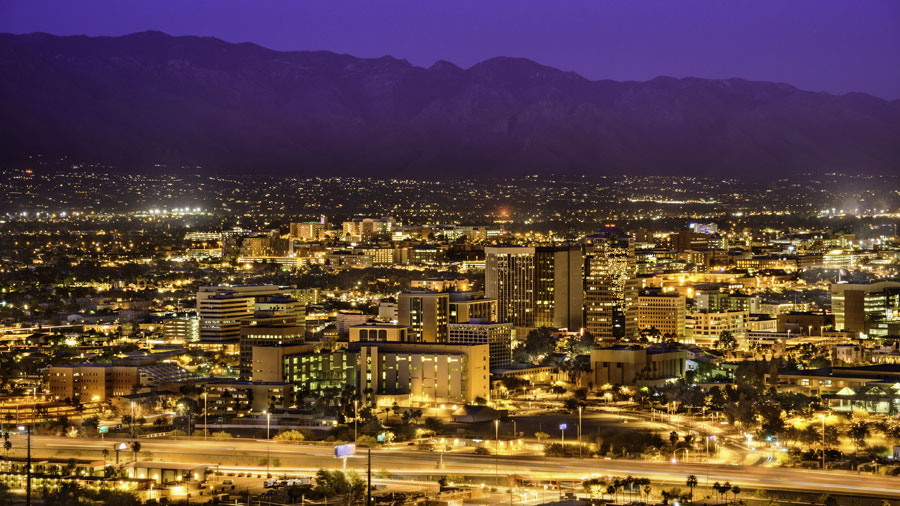
“I can’t say enough about what a difference the Wells Fargo grant has made for OCA Tucson,” said Chapter President and former OCA National President Dr. Leslie Moe-Kaiser. “We were in a difficult position during COVID — we were scared. Tucson was a COVID hotspot in 2020 and 2021, so many snowbirds did not spend the winter in Arizona, and national and regional events were cancelled. But the grant came at the right time. People were excited about the projects,” she said. “Dormant members and volunteers came back.”
OCA was able to provide a leadership program for high school students, give cash and books to all prize winners of their Stop Asian Hate artwork contest, rent a facility for a COVID education program, and provide money directly in the form of vouchers to AAPI small businesses and restaurants.
“We feel we have purpose again and can make a difference in our community,” Dr. Moe-Kaiser said. “We are very grateful for Wells Fargo’s thoughtful, meaningful grant to OCA.”

Creating allies out of bystanders
With the Wells Fargo grant, Asian Americans Advancing Justice – AAJC has been able to develop programs with partner Right To Be to offer individuals strategies to confidently respond to hate incidents. In 2021, more than 85,000 people participated in one of three trainings and according to post-training evaluation results, 75% reported intervening when witnessing harassment because they had completed the training, a best practice in reducing trauma and de-escalating violence.
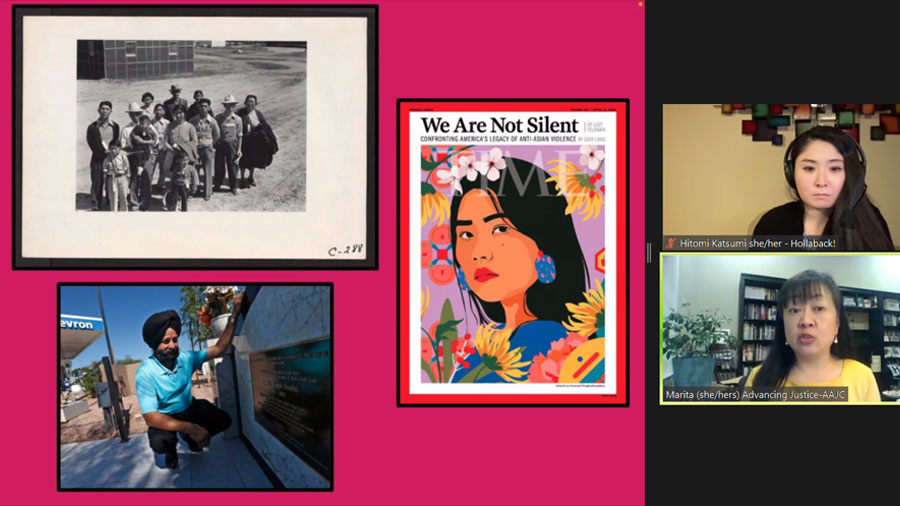
To make the bystander intervention training more accessible to the diverse Asian American communities, the organizations launched bilingual sessions in Cantonese, Mandarin, Hindi, Korean, Tagalog, Thai, and Vietnamese.
With additional investment from Wells Fargo, Right To Be is creating an expanded version of the bystander intervention training for LGBTQ and other communities.

Lighting the way for underserved business owners
Small businesses, a growing share of which are AAPI-owned and operated, are a major engine for U.S. economic growth. Small businesses in particular play a critical role in the AAPI community, according to a May 2022 AAPI Special Economic Report.
There are 900 businesses in San Francisco’s Chinatown, some of which have been around since the turn of the last century.
“Many owners ran businesses in other countries, but things run differently here,” said Lily Lo, president of BeChinatown, a nonprofit dedicated to maintaining the neighborhood’s history and culture. She and her team of volunteers climb the storied hills daily to stop in at storefront after storefront, helping owners complete financial assistance applications in English, counseling on making the shift from all cash to credit cards and online payments, and even filling out a rent check.
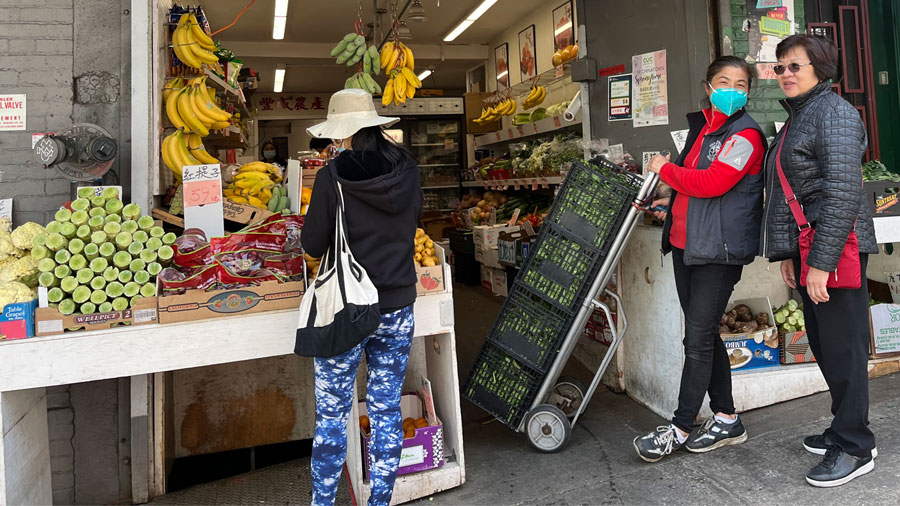
Over the past two years, many businesses in Chinatown were devastated by what Susan Au Allen, national president and CEO of the U.S. Pan Asian American Chamber of Commerce, called “the double sword of COVID” — the pandemic and anti-Asian violence. “Among all the chapters and community-based organization partners USPAACC works with across the country, we believed BeChinatown needed the most help,” she said. So the USPAACC presented BeChinatown the full grant that they received from Wells Fargo.
Lo literally lit the way to businesses by adding the red lanterns to draw people down historic alleyways and keep crime away. “We serve the underserved,” she said.

Honoring unsung AAPI heroes
During the pandemic, Denise Miles, then on the Wells Fargo community relations team, was deeply saddened when she was walking through San Francisco’s Chinatown — one of the largest in the country — and noticed there were no people about. “This is when there was violence happening to Asian seniors in New York and San Francisco,” she said. “I thought, what can we do as Wells Fargo to bring hope to the community?”
“Some Black and African American people look to Martin Luther King and Malcom X. Some Latinos admire Dolores Huerta and Cesar Chavez. Is there a household name for Asians?” Miles, a Filipino American, said. “I wanted to highlight stories of people that could be passed down from generation to generation.”
Miles connected the Chinese Culture Center of San Francisco with Wells Fargo’s Community Mural Program. More than 5,000 San Francisco 8th graders were invited to nominate AAPI social justice champions, artists, activists, and changemakers, and a panel of community leaders selected the 12 finalists. Unveiled on April 27, 2022, the outdoor 16’ by 8’ mural features renowned artist and arts education advocate Ruth Asawa, Black liberation leader and Nobel Prize nominee Yuri Kochiyama, affordable housing crusader Reverend Norman Fong, and Betty Ann Ong, the first to alert America of the 9/11 terrorist attacks, among others.
“Representation matters,” said Wells Fargo’s Cindy Vu, who represented Wells Fargo at the unveiling of the AAPI Community Heroes mural. “AAPI voices aren’t always magnified. It’s nice to see people who look like you being celebrated and acknowledged for their accomplishments.”

At Wells Fargo, we’re deeply dedicated to increasing diverse representation at all levels of the company, creating a more inclusive workplace environment, and better serving and growing our diverse customer segments and suppliers. Read more in our 2022 Diversity, Equity, and Inclusion Report (PDF).
.

